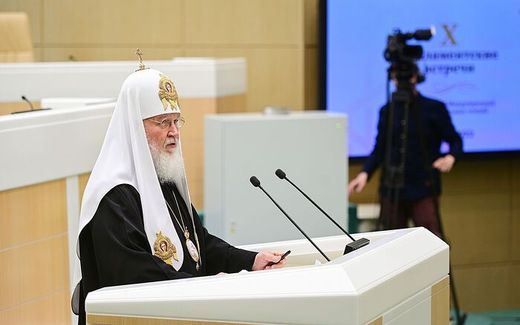What place does the family have in the new government in France?
14-06-2022
Western Europe
Pascale Morinière, RCF

Newly appointed French Health Minister Brigitte Bourguignon (L), former Health Minister Olivier Veran (C) and newly appointed Minister for Solidarity, Autonomy and People with Disabilities Damien Abad. Photo EPA, Christophe Petit Tesson
Western Europe
With the revelation of the new government coalition in France, we discover that no secretary of state is dedicated to the "family". That reveals the evident absence of a vision of society based on this cell, which is nevertheless crucial.
We had to wait for it, but things have become clear. We discovered that the "family" once again disappeared from the executive's organisational chart. There is a Minister for "Solidarity, Autonomy and People with Disabilities" who will probably deal with social issues, the elderly and people with disabilities. And there is a secretary of state who is responsible for children. But like in 2017, with the first Philippe government, there is no place for the family once again. Only since January 2019 a secretary of state had been dedicated to this issue.
How to interpret this
During the almost three-hour debate between the two presidential election rounds, the family was mentioned twice. Once, when the discussion was about intra-family violence and the other time when the candidates spoke about aid for single-parent families. Thus, the two candidates showed that they had no vision of a society based on the family or the family as the vital unit of society.

There are 18 million families in France. No less than about 79 per cent of the French people live with their families. Thus, family life is the daily reality of most French citizens.
And too many people, who suffer from loneliness, regret not being connected and anchored in a family. We cannot ignore that.
I also see that the message of radical ecology propagates the idea that having children aggravates the plundering of the planet's resources. This current of thought is influential among the younger generations.
The government, whose roadmap aims at ecological transition, is probably not sorry for the decline in the birth rate. In any case, it does not do anything to remedy it.
What are the objections?
A recent study by the University of Washington showed that 151 out of the 195 countries worldwide will see a population decrease by 2050. The example of China should cause us to reflect. The abandonment of the one-child policy in 2016, which had been in place for 36 years, does not re-increase the birth rate, and the Chinese population will decrease by 50 per cent by the year 2100. Malthusian policies are suicidal.
Governing a country is taking care of the families that make it up, families who will be able to take care of their children, their elderly or the disabled themselves. We must help families and not only administer individuals.
Pascale Morinière, National President of Catholic Family Associations (AFC). This column was previously published by the Catholic radio station RCF in France.
Related Articles





